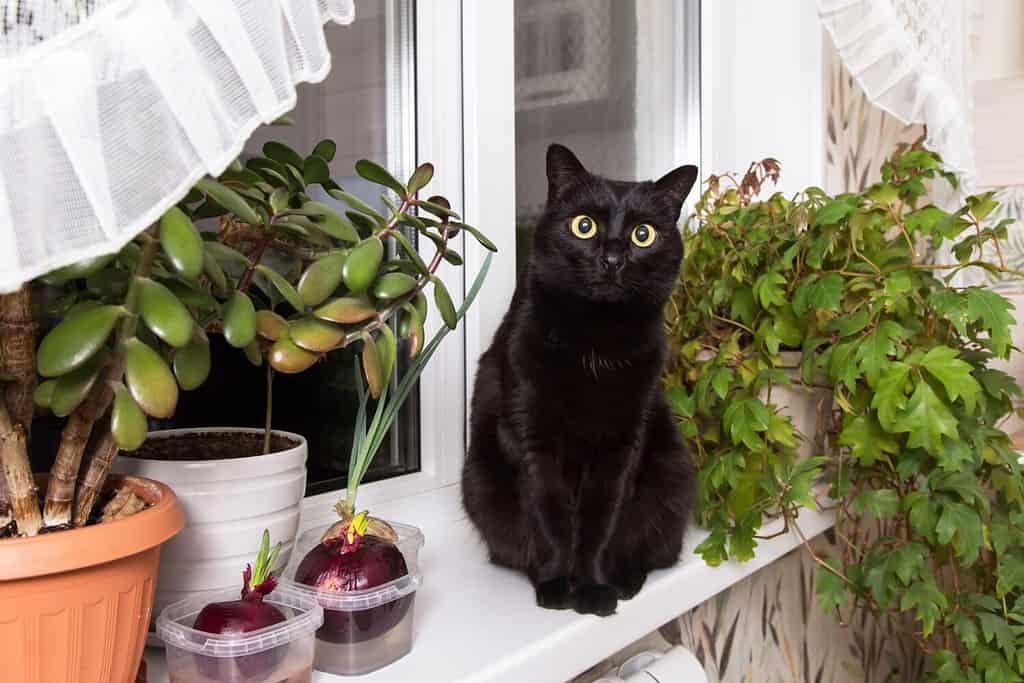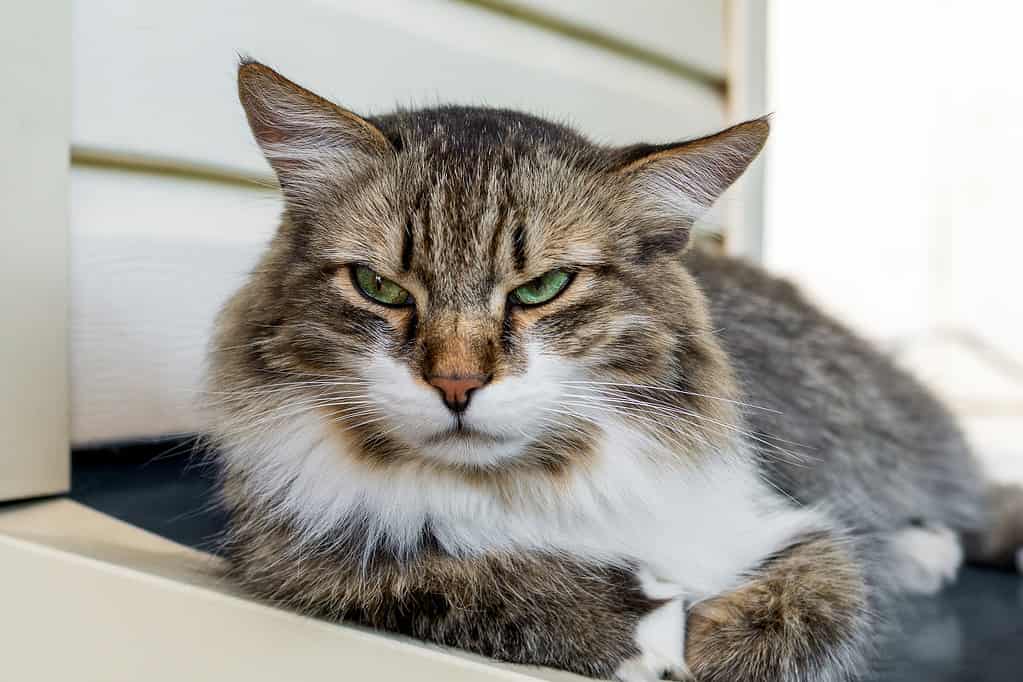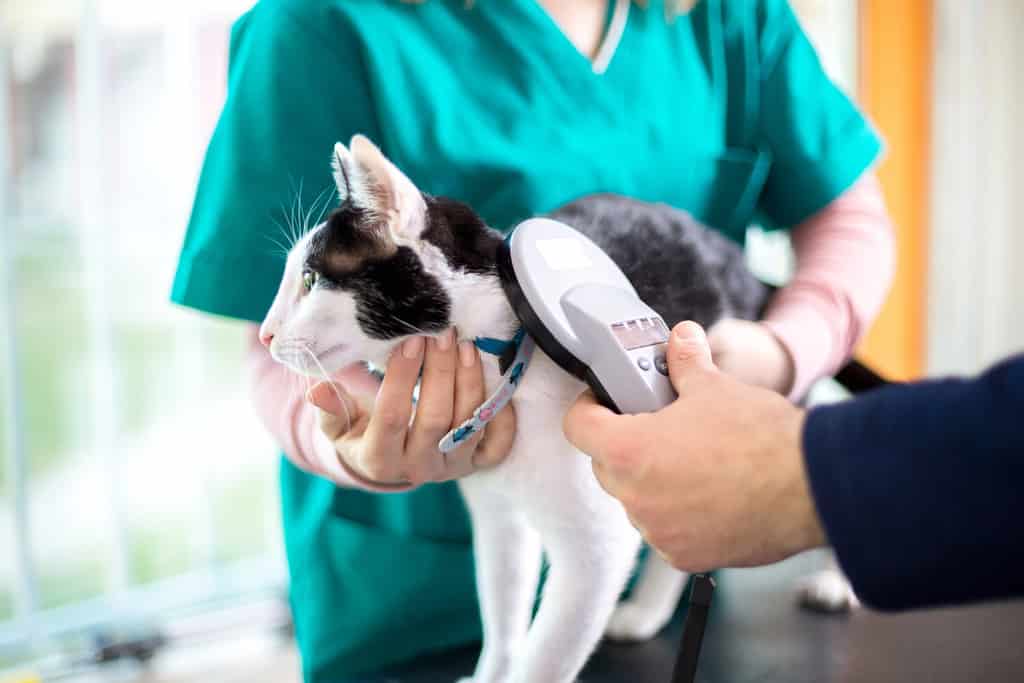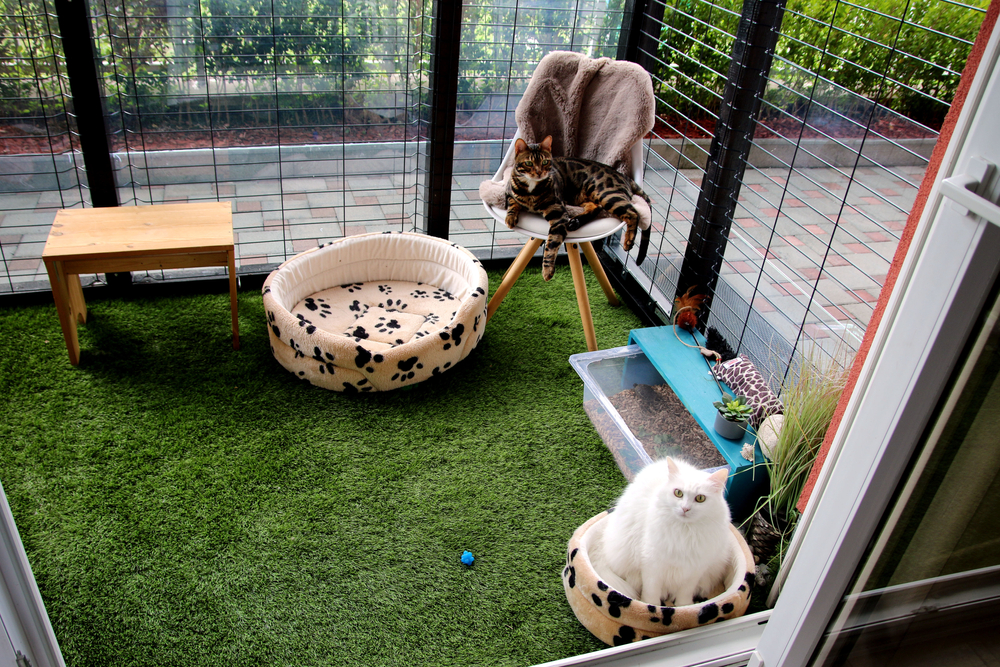4 Reasons to Avoid a GPS Tracker For Your Cat
make great pets. They’re independent yet affectionate. They’re easy to care for with grooming and training. Cats are playful, curious, and reduce stress. They fit well in apartments and are loyal companions, offering joy and comfort. Cat owners want the best for their furry friends and convenience for themselves.
Cat GPS trackers have gained popularity as more pet owners seek ways to monitor their furry companions. However, there are good reasons to avoid purchasing one. We will explore why you might want to think twice about buying a cat GPS tracker and explore better alternatives.
1. Cats Excel at Finding Their Way Home

©Viktor Sergeevich/Shutterstock.com
Cats possess a natural ability to find their way home, even after venturing far from familiar surroundings. Their keen sense of smell and direction allows them to navigate effectively. Cats can also use landmarks and the sun for orientation. Indeed, numerous instances exist of cats covering hundreds of miles to return home. For example, in 2022, , a lost Siamese cat, journeyed over 300 miles through the woods before finally reuniting with her owner.
While cats are adept at homing, there are scenarios in which they might become lost, such as relocating to a new home, encountering frightening situations, or sustaining injuries. If you worry about your cat’s safety, microchipping is a permanent identification method that can facilitate reuniting with your feline friend if they go missing.
2. GPS Trackers Can Be Uncomfortable and Bulky for Cats

©Veronika Viskova/iStock via Getty Images
GPS trackers are typically affixed to a cat’s collar. However, cats are susceptible to anything uncomfortable or bulky around their necks, leading them to at the tracker or attempt to remove it. Sometimes, the tracker might become entangled and pose a choking hazard.
GPS trackers can add weight to a cat’s collar, hindering mobility and potentially causing neck discomfort. When considering a GPS tracker for your cat, choose a lightweight, comfortable model and ensure it is correctly fitted to the collar.
3. GPS Trackers Can Lack Precision

©FOTOFILIA Maciej Pazera/Shutterstock.com
GPS trackers may prove inaccurate, particularly in areas with poor cellular coverage or dense vegetation. These trackers rely on to determine their location, and if that connection falters, their ability to provide accurate data diminishes. Moreover, factors like tall buildings and atmospheric conditions can further affect accuracy, resulting in imprecise cat locations.
When relying on a GPS tracker to monitor your cat, be mindful of its limitations and have a backup plan in case it proves unreliable or non-functional.
4. GPS Trackers Can Be Costly

©Casey Elise Christopher/Shutterstock.com
GPS trackers can be expensive, particularly if they require a subscription fee. Additionally, replacement costs must be considered if the tracker is lost or damaged. Monthly subscription fees can accumulate, especially for multiple cats. You already have connected to caring for your adorable feline. A GPS tracker doesn’t need to be one of them.
Moreover, active outdoor cats may increase the risk of losing or damaging the tracker, necessitating the purchase of a new one. If you’re on a budget, explore alternative options such as microchipping or constructing a catio.
Better Alternatives to Cat GPS Trackers
Microchip

©Lucky Business/Shutterstock.com
A microchip is a permanent identification method implanted under your cat’s skin, which veterinarians and animal shelters can scan. It’s a reliable way to ensure your cat’s identity is always accessible. You can have your cat at your local veterinarian’s office.
AirTag
The is a small, lightweight tracking device that can be attached to your . It uses Bluetooth and Ultra Wideband technology to track your cat’s location. However, it requires other Apple devices to be nearby for tracking.
Tile
Like AirTag, is a small tracking device that attaches to your cat’s collar and uses Bluetooth for tracking. Like AirTag, it also requires other Tile devices to be nearby for monitoring. However, they have recently improved the range and reliability.
Catio

©TheCats/Shutterstock.com
A is a secure outdoor enclosure that allows your cat to enjoy the outdoors without getting lost or injured. Catios come in various sizes and styles, making them a safe and appealing option for outdoor-loving cats. They vary in cost depending on the size and complexity of the catio.
Indoor Training
Consider indoor training if you’re concerned about your cat’s safety outdoors. Provide your cat with plenty of toys and activities to keep them engaged and content indoors. An keeps your indoor cat happy. Creating a safe and stimulating indoor environment can reduce the temptation to roam.
Ultimately, the decision to purchase a cat GPS tracker is yours to make. However, it’s crucial to weigh the pros and cons carefully. If your cat’s safety is a primary concern, explore alternative options that suit your needs better. If you opt for a GPS tracker, ensure it’s lightweight, comfortable, and properly fitted, and always be prepared for potential limitations.









